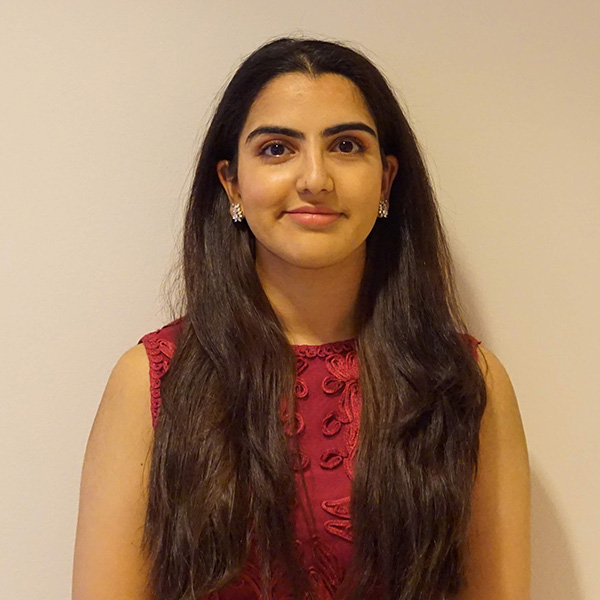Student profile: Nikita Patel
Nikita Patel is a PhD student in the Centre for Translational Medicine and Therapeutics based in the William Harvey Research Institute. This Thursday, 4 November, Nikita will be hosting a youth panel event at COP26 on behalf of the Society of Chemical Industry (SCI). We find out more about Nikita and the panel, as well as her research, and her role as a STEM ambassador.

How long have you been at Queen Mary? Tell us about your PhD.
I started at Queen Mary in October 2018 and I’m doing a full-time non-clinical PhD.
My research is investigating new therapeutic approaches for trauma-associated haemorrhagic shock (severe blood loss), particularly targeting the multiple organ failure that can happen following a traumatic injury such as a road traffic accident, stabbing or shooting. I was drawn to this subject due to the shocking statistics that someone dies of trauma every six seconds and there are more deaths caused by trauma than HIV, tuberculosis and malaria combined - yet there are still no treatments for multiple organ failure.
You’re hosting a COP26 panel this Thursday, 4 November, tell us how you got involved and how we can join in.
I was asked to co-host the youth panel event by the Society of Chemical Industry after participating in the STEM for Britain competition where entrants present their research in a format that lay persons can understand. As a result, SCI invited me to co-host with senior scientist, Oliver Ring from AstraZeneca. I’ll be using my science communication skills to field questions from the audience and try to ensure they are understood by all.
The discussion will be about combating climate change with chemistry. The panel will raise the audience’s awareness of the innovations being developed by upcoming scientists around the topics of fuels of the future, turning waste into gold, and ultimately engineering nature.
The event, COP26- Countdown to Planet Zero, taking place at the Science Show Theatre at the Glasgow Science Theatre is sold out for physical attendance, however, there’s still time to register for an online place.
You’re also a STEM ambassador for schools, what does that involve?
As a STEM ambassador my role has been varied. Before the pandemic, I partnered with a local primary school to break down the stereotypes of what a scientist should look like by speaking with each year group individually about my career pathway. During the pandemic I took part in remote activities with schools across the country including writing for the STEM Catalyst magazine and creating a 'Guess my job' presentation.
Describe your average day/week.
While no two days are the same, a typical day could start off with a team meeting with my supervisor and colleagues to discuss or present research updates and future plans. This will be followed by performing experiments in the lab, data analysis of results collected previously and reading the latest publications in the field of trauma to help inform what experiments I should conduct next.
What’s your advice to anyone who is thinking about doing a PhD?
My advice would be to do enough research on the PhD programmes available to see what suits you best and contact the supervisor(s) to discuss the project further. This means you’ll get chance to get to know the supervisor(s) a bit better. Think about the location of the PhD as you will be there for 3-4 years. Also, be prepared for the PhD to most likely have ups and downs but remember it will be worth it in the end! The Find a PhD website is a good place to start by filtering projects by subject, location, institution and funding.
What’s your favourite place on any of our campuses?
My favourite place is the Charterhouse Square green, especially during the summer as it's nice to get some fresh air, have lunch and work outside for a change of scene from the office or lab!